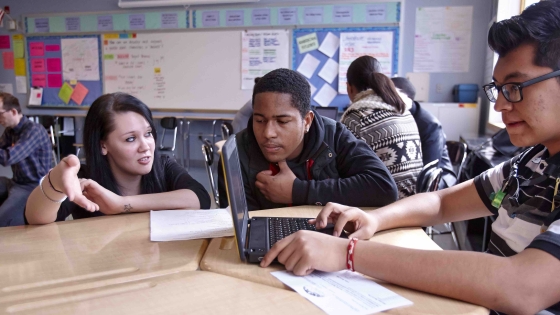Lessons from New York City
By Clare Buckley Flack, John Sludden, Kathryn Hill, and James J. Kemple
(November 2023)
New York City Public Schools are in the midst of a major expansion of work-based learning programs for high school students. While the scope of this initiative is new, the effort to link students to work in NYC has been underway for decades. ExpandED STEM Options (ES Options)—part of the broader Options initiative led by ExpandED Schools—is one example.
ES Options provides students with STEM-focused, credit-bearing apprenticeships after school. Students who successfully complete an apprenticeship in the spring continue into paid summer internships where they teach the STEM content that they recently learned to younger students in settings like city-funded day camps. The Research Alliance is evaluating ES Options as part of the US Department of Education’s EIR grant program. In this report, the first of two from our study, we examine student recruitment, enrollment, and retention for the 2022 cohort.
Prior research suggests initiatives like ES Options are difficult to sustain and scale. In line with this, our findings highlighted a number of challenges for student retention and program expansion. We found that only about a quarter of the nearly 400 students who initially applied to ES Options in 2022 completed the spring apprenticeship and then moved on to participate in a summer internship.
Drawing on data from program providers, instructors, and students involved in ES Options, our report makes a number of recommendations aimed at increasing program persistence. These include:
- Strengthen connections between program providers and school staff,
- Offer additional financial incentives to students where feasible,
- Shorten the recruitment process and communicate with applicants more frequently prior to enrollment, and
- Provide robust support to help students complete the program—with an emphasis on flexibility, relationships, and community-building.
We hope our findings and recommendations are useful for ES Options and other similar work-based learning initiatives for teens. Future research will examine ES Options’ impact on students, including their interest and engagement in STEM and their progress toward high school graduation and college.
This study is funded by the US Department of Education’s Education Innovation and Research (EIR) Early Phase Demonstration grant (Award # U411C180023).

